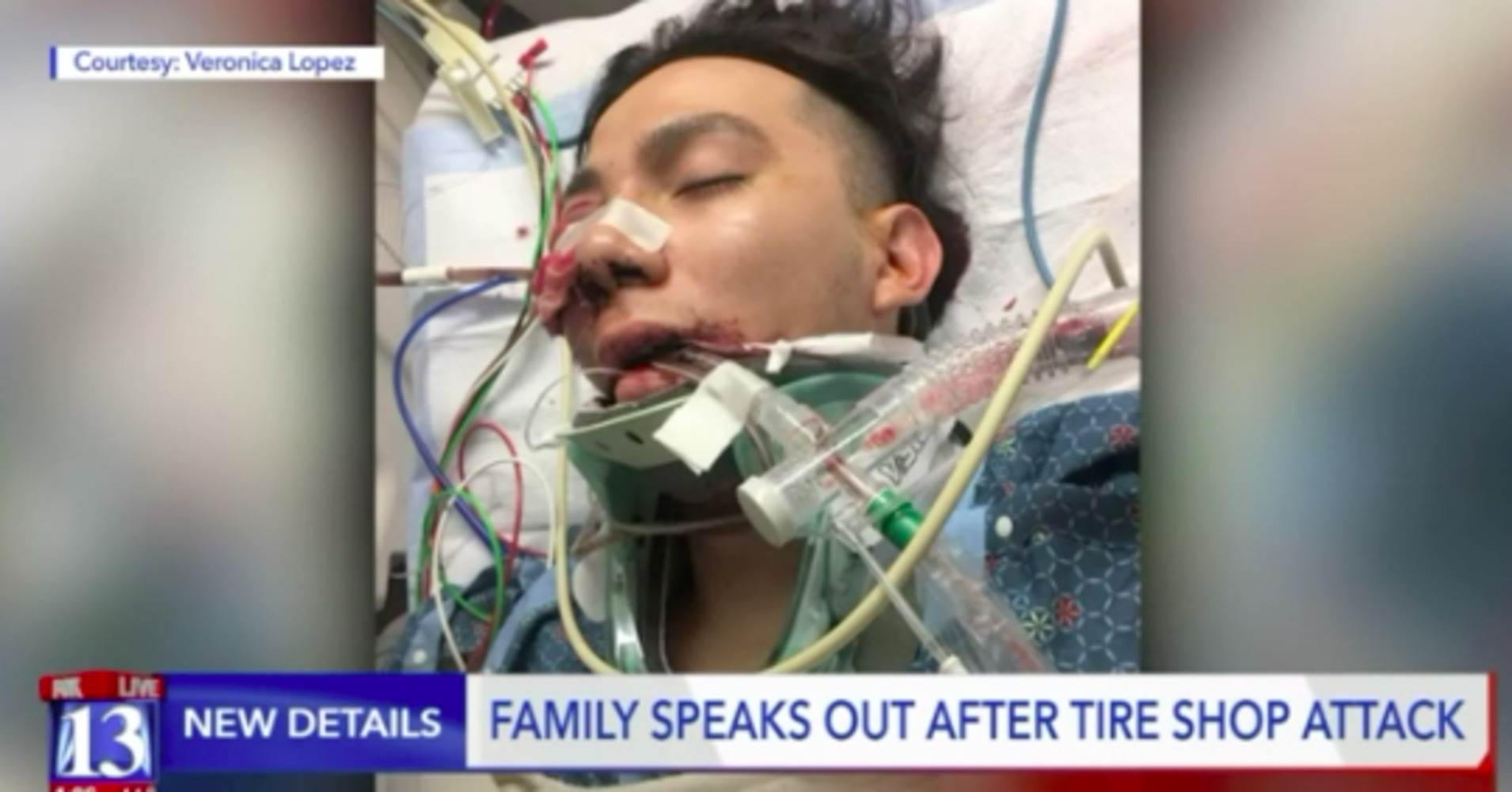[ad_1]
Luis Gustavo Lopez’s left cheekbone and eye socket shattered instantly as the five-foot metal pole cracked against his face ― a blow that would send him to the intensive care unit for several days.
The 18-year-old college student had been working at his father’s Salt Lake City tire shop on the morning of Nov. 27 when a middle-aged man he never met allegedly approached him asking if he was Mexican and hurling slurs at him.
“I’m here to kill a Mexican!” the assailant allegedly shouted. “I hate Mexicans!”
He pummeled Luis and his father Jose with the makeshift weapon, eventually knocking the teenager unconscious and leaving his 51-year-old father bloody and bruised.
On its face, the attack appears to be a cut-and-dry hate crime involving a man whose apparent hatred of Mexicans motivated him to threaten and attack members of the Latino community.
But the state didn’t charge the suspect, 50-year-old Alan Dale Covington, with a hate crime. Why? Because Utah’s hate crime code is essentially “unenforceable” and the state’s Legislature refuses to do anything about it.
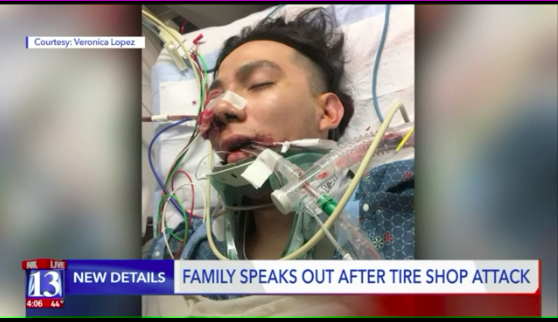
Fox 31
Under Utah code, a case cannot be tried as a hate crime if the charge is more serious than a misdemeanor, rendering the legislation essentially useless, according to Salt Lake County District Attorney Sim Gill.
Covington could face substantially more time behind bars if the state were able to try his case as a hate crime. But since he was charged with felony aggravated assault, which exceeds a misdemeanor, the district attorney’s office is unable to pursue such action.
“The statute that we have is such an unworkable, unenforceable statute,” Gill told HuffPost on Tuesday. “It seems counterintuitive … almost backward.”
“It’s not worth the paper it’s written on,” he added.
The Lopez case isn’t an outlier either. Utah has never seen a hate crime prosecuted at the state level. The Beehive State is one of only a few states that hasn’t passed meaningful hate crime legislation ― a failure Gill blames on the “personal animus” and “willful ignorance” of the Utah State Legislature.
“It really is an abdication of their moral, ethical and legal responsibility as elected officials,” Gill said. “It is a desire to not help these communities.”
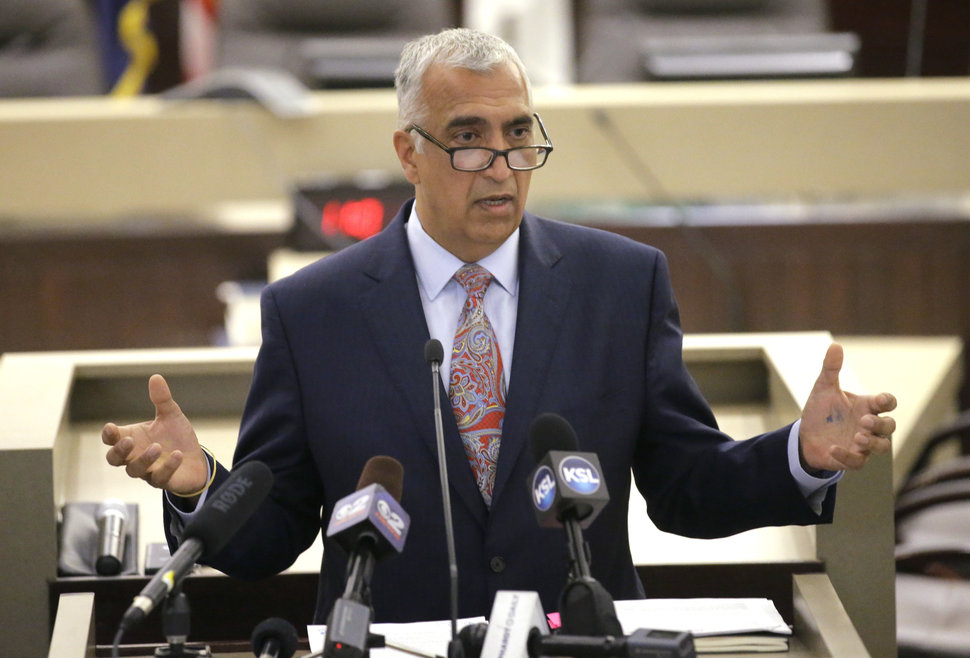
THE ASSOCIATED PRESS
In early 2016, Utah state Sen. Steve Urquhart (R) sponsored a bill that would strengthen the state’s hate crime legislation. But the bill was “snuffed out” ― as he put it at the time ― by The Church of Jesus Christ of Latter-day Saints, which had released a statement encouraging lawmakers not to pass laws that would “upset the balance between religious liberty and LGBT rights.”
LDS church members, commonly referred to as Mormons, make up more than 60 percent of Utah’s population and roughly 90 percent of state lawmakers. The religious body is widely viewed as having a heavy influence on certain policy decisions.
“I now reject the term ‘Utah compromise,’” Urquhart, a member of the LDS church, had said during a news conference about the organization’s statement.
“Utah Compromise” refers to the LDS church’s support for an LGBTQ anti-discrimination law passed in 2015, which made it illegal to fire or deny housing to someone based on gender identity or their stance on homosexuality, though it exempts religious organizations and the Boy Scouts of America.
“Yesterday that term, that concept, through a press release was perverted into a club to beat back further progress on civil rights,” he added.
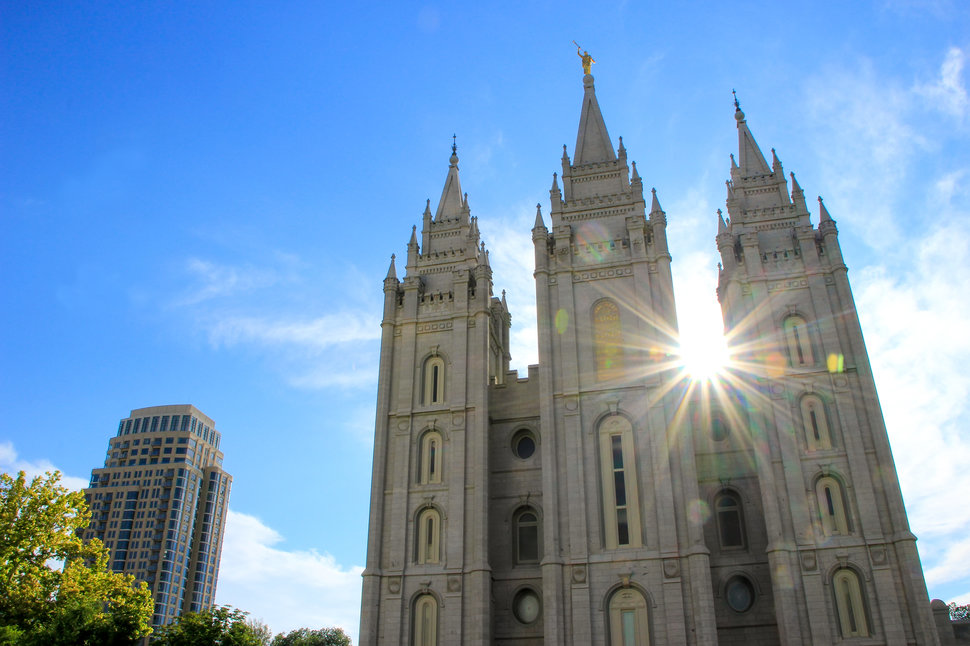
Donyanedomam via Getty Images
When Urquhart did not seek re-election in 2016, Utah state Sen. Daniel Thatcher (R) adopted the hate crimes legislation crusade as his own.
“There are people getting bullied in Utah,” Thatcher told HuffPost on Monday. “A failure to address this, in my opinion, is a failure on our part to do our jobs.”
Thatcher’s bill (S.B. 86) would allow judges to increase the penalties for a charged crime if a defendant is convicted of targeting someone based on “ancestry, disability, ethnicity, gender, gender identity, national origin, race, religion or sexual orientation.”
The proposed legislation garnered support from several Utah law enforcement associations and every major religious organization ― except the LDS church, which hasn’t publicly commented on it. The LDS church declined to comment on the record for this story.
Despite wide-ranging support, the bill hasn’t gained momentum within the Legislature, failing to win a Senate hearing three years in a row.
Without the nod of the LDS church, there will be no hate crimes bill. … It just seems to me that it’s a slam-dunk for a religion to be against hate crimes.
Utah state Sen. Jim Dabakis (D)
Thatcher said he intends to float his proposal again when a new legislative session begins in January and feels confident his bill will make it through a committee debate and onto the Senate floor for a vote this time around ― especially in light of the Lopez incident.
“The biggest reason that we need this change right now is to send a message that we won’t tolerate this kind of bigotry, this kind of violence in Utah,” he said, adding that he believes some conservative holdouts view hate crimes as a “liberal social justice issue.”
“I knew that I would never support hate crimes [legislation] because all crimes are hate crimes … until I did my homework,” Thatcher said. “The people who actually understand the law support this legislation.”
Some LGBT activist groups have recently come out against passing hate crimes legislation, arguing that increasing punishment isn’t necessarily the best way to curb violence.
Other critics argue hate crime laws lead to unequal punishments for “equal crimes.” Utah state Sen. Dan Hemmert (R) said he’s “always open to learn more” but feels pretty firmly set on the anti-hate crime legislation side of the debate.
“What I struggle with is the qualitative aspect,” said Hemmert, suggesting it’s impossible to measure how a community ― not just a specific victim ― is impacted by a crime. “Let’s just have a uniform punishment for the crime.”
But advocates of the proposed legislation have thrown cold water on such arguments, noting that a hate crime clearly affects both a targeted victim and their community as a whole by instilling a message of fear and terror.
Troy Williams, executive director of LGBTQ rights group Equality Utah, bashed Hemmert’s position as “pure bunk.” For example, he said, a swastika spray-painted on a synagogue would have a stronger impact on the Jewish community than, say, a smiley face.
Hemmert “doesn’t have to see the actual consequences of what it’s like to be a minority in America,” Williams said. “It’s his way of evading the real debate about real crimes that are happening.”
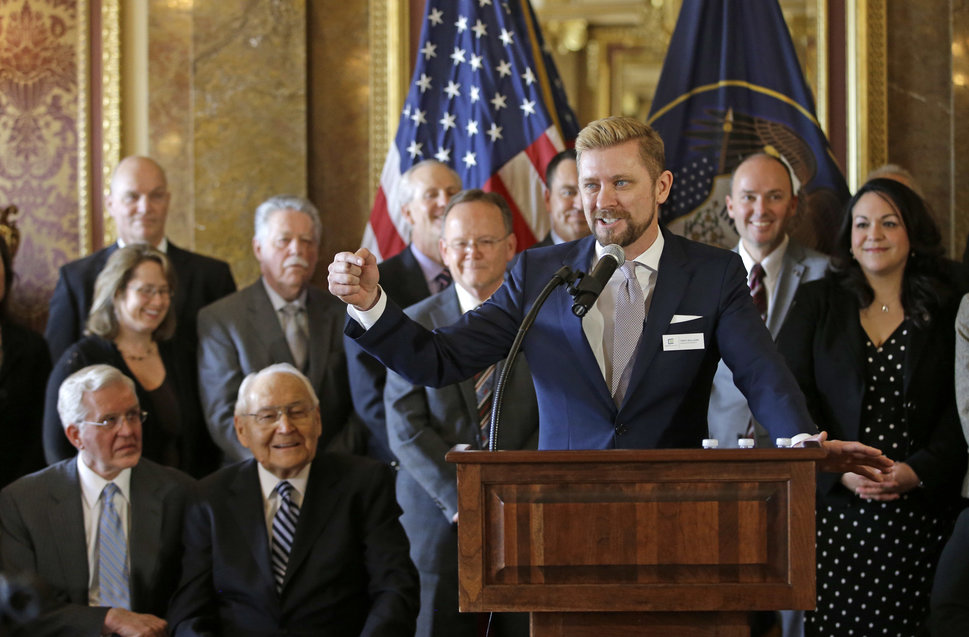
THE ASSOCIATED PRESS
Thatcher believes federal law enforcement agencies could prosecute the Lopez incident as a federal hate crime. But states can’t always rely on federal agencies to do so.
Plus, proponents of hate crime laws say the state sends a strong message of inclusivity and tolerance by enacting such legislation ― and an even stronger message when they don’t.
“The message is pretty clear that you do not matter,” Gill said of the stalled efforts to pass hate crime legislation. “The message is pretty clear that your pain and suffering, the terror that you feel, is not relevant enough for us as a community concern.”
The biggest obstacle for Utahans seeking hate crime laws with teeth appears to be the LDS church, as its silence on Thatcher’s bill has created the perception the church disapproves of it.
“It’s very frustrating because without the nod of the LDS church, there will be no hate crimes bill,” Utah state Sen. Jim Dabakis (D) told HuffPost.
“They get their way 95 percent of the time” when they weigh in on legislation, he added. “It just seems to me that it’s a slam-dunk for a religion to be against hate crimes.”
Multiple members of the Utah Senate said the LDS church only weighs in on legislation it believes is of “moral imperative,” which apparently does not include Thatcher’s bill ― legislation that would help protect religious communities.
The LDS church did come out in support of the recently passed legislation legalizing medical marijuana in the state, as well as other bills that relate to alcohol, a prohibited substance in the religion.
Gill called the LDS church’s apparent opposition to strengthening hate crime laws in Utah “the irony of all ironies.”
“The historical structure of Utah is premised on a level of intolerance of Mormon pioneers being driven out of Illinois … because of their faith,” he said. “They were targeted in hate crimes. That is our heritage and history ― yet we cannot seem to empathize with the same injury and hurt that is being perpetuated today.”
[ad_2]
Source link

